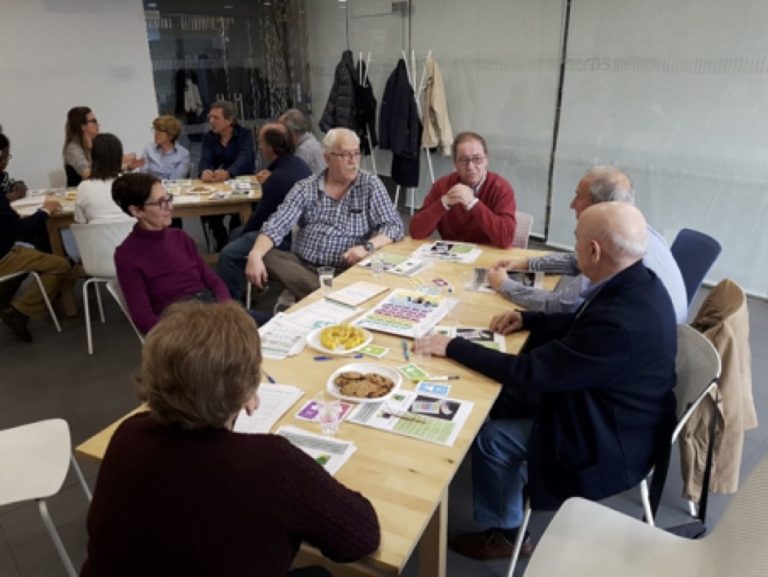Julie and Binta have travelled from UK to partner INTRAS in Spain to peer review The Good Life Kitwith participants of the public and patient involvement group who eagerly share memories during This Is Me and nod delightedly at one another’s recollections.
We demonstrate that with support, and within non-judgmental spaces, anyone can join in game-play. For Clara,this means remembering when and how to throw the dice. Her partner, relieved that mistakes are not stigmatised, sits back and relaxes and stops trying to protect her by limiting her involvement. Clara looks forward to her turn to roll the dice; she is part of the team!
Anaalso needs support, throwing counters and cards, until with gentle help, she rolls the dice. When her memory cue is read, Anatravels back to happy childhood; face creased in smiles, she mimes beautiful bead necklaces young Anamakes to wear around her neck. Now alert and engaged, Ana chats for the first time with other players.
For Anaand Clara; connection, stimulation, engagement, interaction, joy; for their care-givers, relaxation: everyone happily involved in game-play!
This Is Me,appears very suitable for people with early stages of memory loss. Participants overall like the idea of playing again, playing with grandchildren, looking backwards and forwards on life and creating new games and reminiscence possibilities from the materials. It could perhaps have a wider use, too, in helping people with less capacity engage and socialise.
The mutual trust generated within our second game, You and Me,frees players up to express pain and longing, to cry, to share, to be understood, heard and held within the heart of the group. Both games have acted as catalyst to unlock experiences otherwise lost, denied or deeply withheld. Game-play is effective in allowing mindful exploration of questions needing to be asked and answered, pasts wishing to be appreciated and futures waiting to be lived.

